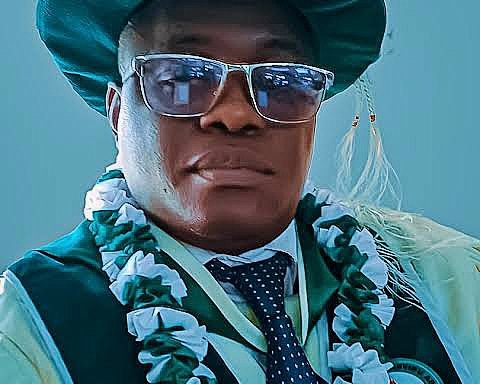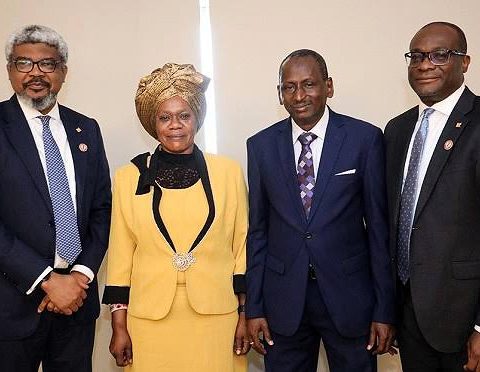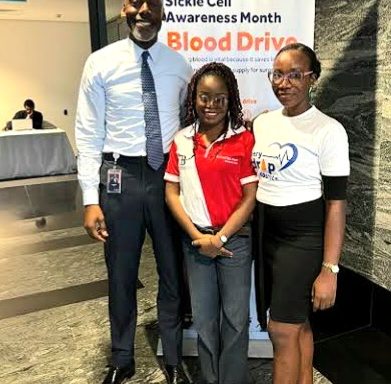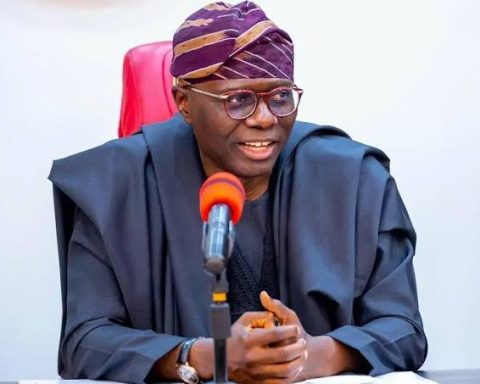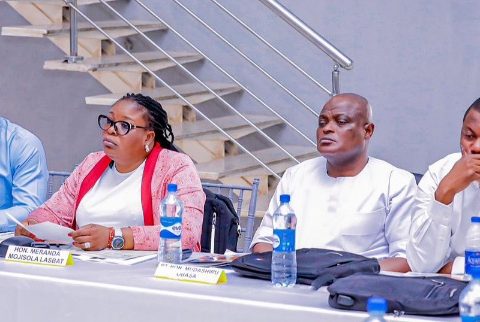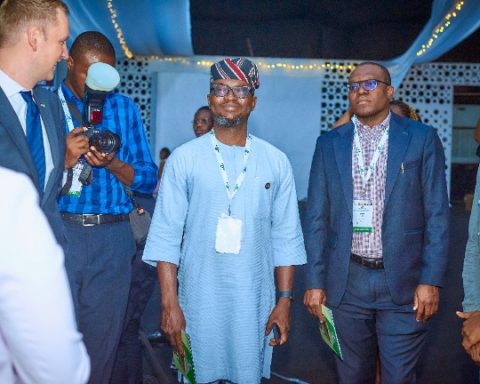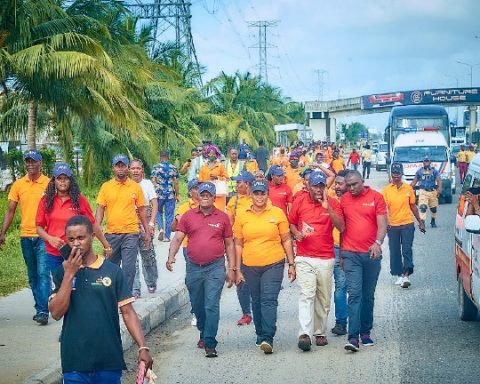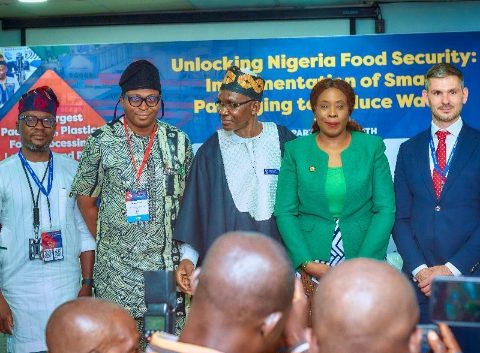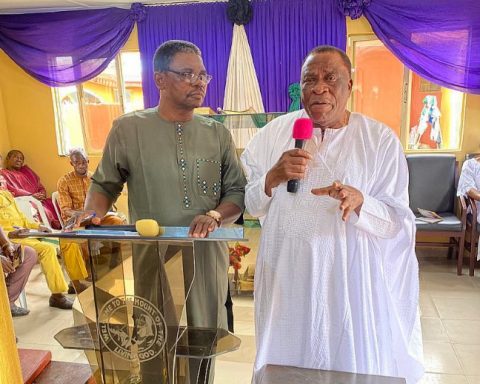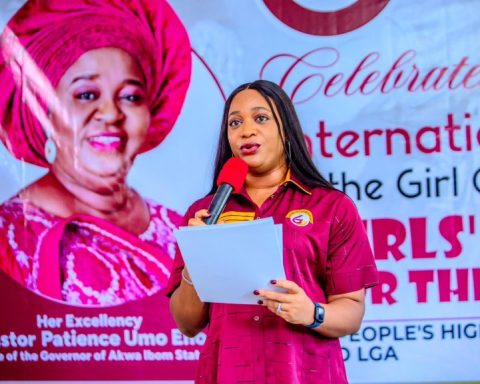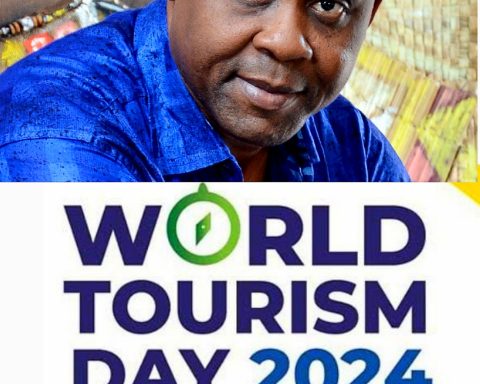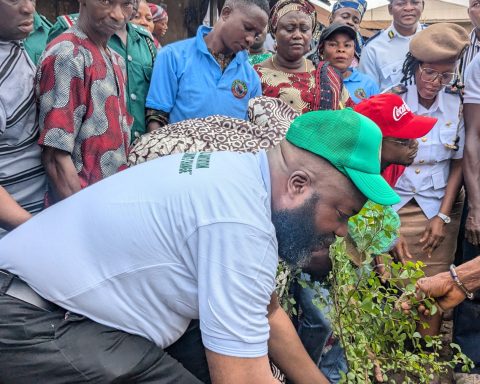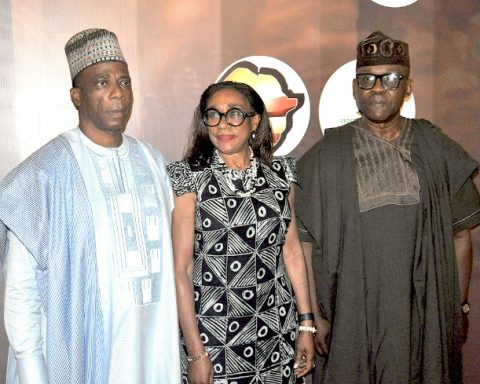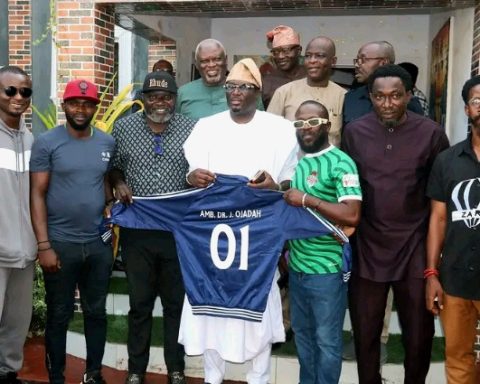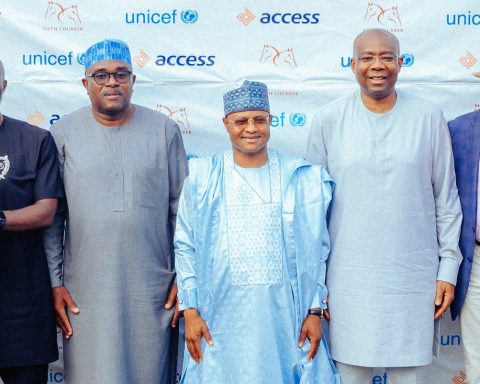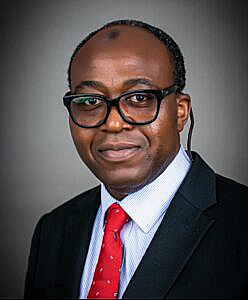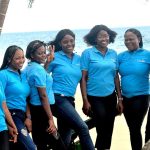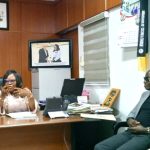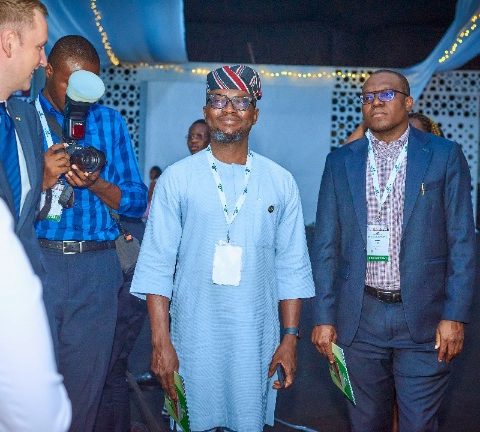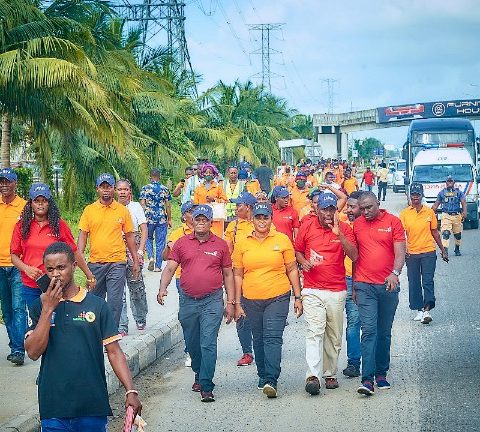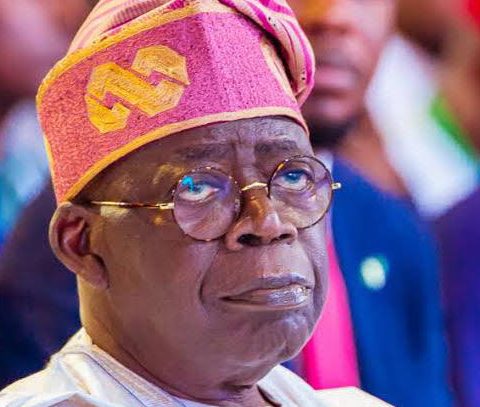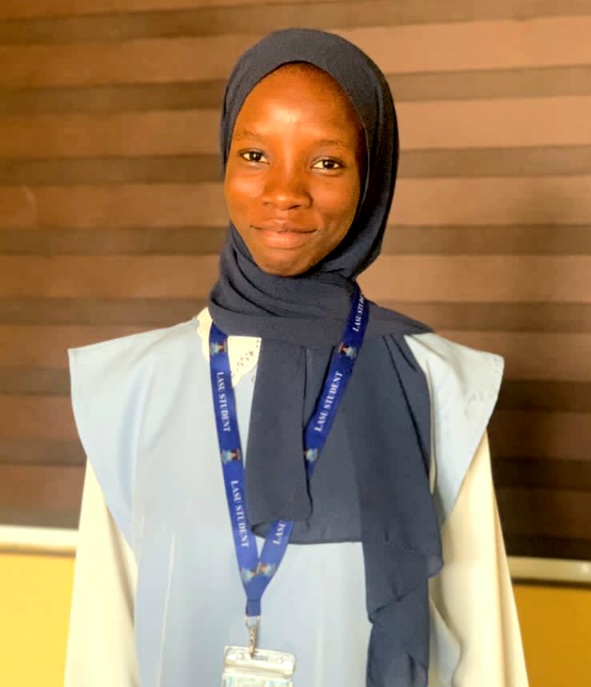
By Ajayi Samiat Oluwatimilehin
“Depressing” is how Chioma describes attending lectures upstairs. The 400 level physically impaired student says she doesn’t look forward to classes upstairs at all because her coursemates would have to lift her up with her wheelchair. She uses the word “worse” to describe their diploma building saying “My classmates, the boys, suffer a lot to take me up there”.
Accessing education as a person with disabilities in Nigeria is a difficult task for Chioma and many other students with disabilities. The primary obstacle arises from the severe lack of provisions for people living with disability in the educational system, particularly at the university level.
Undergraduates like Chioma and Adesewa, have described the process of pursuing education as “depressing” and “difficult,” respectively. Their experiences are a testament of the long standing neglect of the rights of persons with disabilities within Nigeria’s educational sector, and how this neglect stifles the educational aspirations of those seeking to exercise their fundamental right to education in Nigeria, where the executive secretary of the National Commission for Persons With Disabilities (NCPWD), said a staggering 35.1 million individuals were living with disabilities as of 2023.
The United Nations Educational, Scientific, and Cultural Organization (UNESCO) stated that the chances of students with disabilities completing primary or secondary education are low in many countries worldwide, but the challenges extend to the tertiary level. Disturbingly, UNICEF estimates that 95% of children with disabilities globally face this predicament, with a staggering 90% potentially never gaining access to basic education in their lifetime.
Despite multiple state and national laws and policies established to protect these rights and ensure societal integration, students with disabilities in Nigerian tertiary institutions still grapple with challenges. This persists because the nation generally is yet to fully embrace the idea of accessibility and inclusion.
After 18 years of advocacy, Nigeria’s former President Muhammadu Buhari signed the Discrimination Against Persons with Disabilities (Prohibition) Act 2018 into law on January 23, 2019. The stated purpose of the bill suggested the government was ready and willing to take steps to promote accessibility and inclusion, however, five years later, this law is still yet to be fully adopted in the country.
A concerning sector that has been remiss in fully implementing the law is education – Tertiary institutions in Lagos like the University of Lagos (UNILAG) and Lagos State University (LASU) are classified as public buildings, falling under the purview of the Discrimination Against Persons with Disabilities Act.
According to the Act’s definition, a “public building” includes structures owned or utilized by the government, government agencies, or buildings available for public use. Consequently, these two tertiary institutions are mandated to comply with the provisions outlined in the Act.
However, UNILAG and LASU appear to be falling short in fully adhering to the prescribed guidelines.
For instance, Section 3 and Section 4 of the Act respectively state that “a person with disability has the right to access the physical environment and buildings on an equal basis with others,” and “a public building shall be constructed with the necessary accessibility aids such as lifts (where necessary), ramps and any other facility that shall make them accessible to and usable by persons with disabilities.”
However, at the University of Lagos, the experience of Agbede Balikis, a visually impaired student contradicts this. She explains why by saying “Talking about the buildings, they are built in such a way that is accessible for the able-bodied. I don’t think they actually thought of the visually impaired.”
Although Balikis speaks as a visually impaired student, the experience is quite similar for Chioma, a physically challenged student who uses a wheelchair at the University of Lagos.
Chioma expresses dissatisfaction, stating, “My faculty’s buildings are not accessible at all. There are a lot of staircases, and no ramps. Before, if we had classes upstairs, my classmates would have to lift me up with my wheelchair, which is very, very difficult. And again, my wheelchair is heavy, which adds more difficulty. There’s another place we always go for lectures, the Diploma Building. That place is the worst. The staircase is very, very high. My classmates, the boys, suffer a lot to take me up there. It’s so depressing. I don’t look forward to going to classes upstairs at all. The building itself is not easily accessible.”
Balikis’ opinion strongly represents the problem of inclusion and integration in the educational sector, while Chioma’s assertion that “the university buildings are not easily accessible” reflects the struggle for physical access that students with disabilities face daily.
The lack and inadequate installation of accessibility aids like lifts and ramps in necessary areas poses a daily challenge for students with disabilities. Chioma, for instance, highlights the issue, stating, ‘Although there are ramps at the main library, they are too high and inaccessible. I can’t navigate them without assistance.”
Chioma also adds that the narrow entrances at places like the banks within the school premises forces her to leave her wheelchair and crawl in order to gain access.
For Adesewa, a physically impaired student at Lagos State University who uses a single crutch, the struggle to attend classes is an uphill battle. The ordeal doesn’t end with climbing stairs to reach the originally selected hall, which happens “most times.” It continues with the indecision over where classes will be held.
Followed by the tendency to experience chest pains after such strenuous efforts. Adesewa describes the entire experience as “difficult.” She says “If we are having class upstairs, it will be so stressful, and when you get there, they will be like they have changed the hall, so you go downstairs,” Adesewa laments. “I’m the type that if I climb stairs so many times, it affects my chest very well, and I find it difficult.”
While ramps and elevators are present at both institutions, their availability is not consistently provided across all necessary locations on the campuses, resulting in accessibility concerns.
With the evident non-compliance with Sections 3 and 4 of the Discrimination Against Persons with Disabilities Act, the National Commission for Persons with Disabilities is empowered to take action. Section 37 (m) of the Act authorizes the Commission to “in collaboration with other relevant government agencies and professional bodies in the building industry, enforce compliance of public building codes and impose necessary sanctions and make appropriate orders.”
Hence, in December 2023, in a move to enforce compliance with accessibility regulations, the federal government issued a stern warning. It promised to shut down public buildings that failed to adopt or implement the provisions outlined in the Discrimination Against Persons with Disabilities Act after the five-year ultimatum expired in January 2024. However, no action has been taken since then.
The challenges faced by students with disabilities extend beyond navigating buildings, as moving through campus roads also poses significant obstacles. Godwin Sunday, a visually impaired student at the University of Lagos, also the assistant general secretary of Unilag’s chapter of the National Association of Nigerian Students with Visual Impairments reveals, “To walk in UNILAG, especially as a totally blind person, is an arduous task without assistance. It is not easy until you find someone to guide you.”
Although Section 5 of the Act states, “Roadside-walks, pedestrian crossings, and all other special facilities as set out in the First Schedule made for public use shall be made accessible to and usable by persons with disabilities, including those on wheelchairs and the visually impaired,” inaccessible roads still hinder students with mobility and visual impairments from navigating the campus safely and independently, this is because of the prevalence of potholes and the lack of signage in accessible formats which should contribute to a barrier-free environment.
Oluchi Onyemachi, the welfare secretary of the University of Lagos chapter of the National Association of Nigerian Students with Visual Impairments, and a student with low vision, echoes Sunday’s sentiments. She describes moving around campus as a “daunting task” because the roads are not always safe due to potholes and open gutters, which she says “are almost a regular feature on the roads.”
“There’s this particular road in school, the Mariere Hostel Road, that is notorious. There’s a slab there, and between the slabs, there’s a mini kind of pothole, like a slight opening. A lot of people can dodge the hole. Even I can dodge it because I’m partially sighted, but many who are not partially sighted will always fall inside. I had two friends who dipped their legs inside, like twice, and had injuries multiple times, even as bad as falling into the gutter. I heard of three to four such injury incidents this semester alone,” Oluchi said.
These daily accessibility challenges are encountered by
visually impaired students like Godwin, who cannot independently and safely navigate the campus grounds without assistance from a sighted companion. Incidents like the one involving Oluchi’s friends, who suffered bodily harm, also underscores the pressing need to address such barriers on college campuses.
On the other hand, campus shuttles can facilitate movement for visually impaired students without significant difficulty, but this alternative mode of navigating campus roads poses a substantial challenge for physically impaired students like Okeke Chioma Joan.
Chioma narrates her ordeal with campus transport, “I usually use them before, but the drivers, I think, don’t have space for my wheelchair. So I don’t usually use them again. I prefer to just go on the road like that. Inside the university, I don’t use transport. I go on the road with my wheelchair because I don’t want the drivers to start shouting that there is no space in their vehicle for my wheelchair. And I don’t want anything to happen to my wheelchair.”
Despite multiple provisions of the act concerning the provisions of goods, services and facilities, as well as accessibility of vehicles to persons with disability, like section 1(1) which state that “a person with disability shall not be discriminated against on the ground of his disability by any person or institution in any manner or circumstance.”
Also Section 9(1)(a) and (b) on the accessibility of vehicles which mandates that service providers “shall not discriminate against another person with disability by refusing to provide those goods or services or make those facilities available to him, or through the terms or conditions on which the provider provides those goods or services or makes those facilities available to him.”
Section 11(1) also addresses wheelchairs, stating, “Transport service providers shall make provisions for lifts, ramps, and other accessibility aids to enhance the accessibility of their vehicles, parks, and bus stops to persons with disabilities, including those on wheelchairs.”
However, Chioma’s experience highlights the lack of accessibility in campus transportation, denying her equal access to these essential services.
In Lagos State University, Adesewa, who relies on a single crutch and resides in the school hostel explains that campus transportation at the school hostel has become increasingly inaccessible. She explains that shuttles no longer provide service to the hostel area, forcing her to make the arduous trek from her hostel to the Faculty of Management Science where most of her lectures take place. “It’s a lot of journey,” Adesewa describes.
Her commute from the hostel to the Faculty where she takes most of her classes involves an exhausting trek that she must complete bit by bit, before finally reaching her destination.
Addressing this issue of inaccessibility, Mr Afeez Ayanwale, a shuttle driver, explained that two or three of his fellow drivers park near the hostel area and make efforts to transport students with disabilities to and from the school premises. However, he suggested that the students may not be ready at the drivers departure times which prevents them from enjoying the shuttle service.
Additionally, Section 17(3 )of the Act states that “The Commission shall provide educational assistive devices.” However, in the classroom, Balikis explains that being visually impaired does not mean they receive separate instruction. “It is much more like when a lecturer is in class, writing on the board, he keeps talking. Even if you tell them, sir, please, I cannot see it, They cannot explain to you. Rather, they’ll tell you to go back to your colleague for more explanation”.
Section 20 also mandates that “Government shall ensure that the education of persons with disabilities, particularly children who are blind, deaf or with multiple disabilities, is delivered in the most appropriate language, mode and means of communication for the individual, and in environments which maximize academic and social development”.
Even with this, as part of the “visually impaired community” that he says “feel[s] the brunt of every societal factor most,” Anu, a visually impaired student at Lagos State University relies heavily on his hearing in the absence of his eyes. However, without a clear policy allowing students with disabilities to sit at the front row in LASU, he struggles.
“I need to listen with my ears to understand, to learn in class. And if I’m sitting at the back where there will be noise and then a class of more than 200 students, you don’t expect the lecturer to shout at the top of his voice,” Anu explained.
Unlike UNILAG, where Associate Professor Ibitayo Popoola, a lecturer in the Department of Mass Communication, confirms that the university has an inclusive policy allowing students with disabilities to sit at the front, respondents at LASU reveal that this provision is lacking, which hinders Anu’s learning experience.
“If I’m in front, I would be able to hear what the lecturer is saying,” he said. “Personally, I would not just go to the front when it is full and expect someone to stand up for me as if it’s my birthright. If I go, someone might stand up for me, you know, but when it’s not a policy implemented by the school, I would not want to do that.
Even at the University of Lagos where Oluchi says a seating accommodation practice exists for disabled students, compliance remains an issue. Oluchi recounts multiple instances where she had to implore able-bodied students seated in the front rows to make space for her, only to be refused. Due to such violations, she describes the practice as “more or less redundant” and says “I don’t really rely on those things, so I go to class as early as possible.”
Anu’s experience underscores how the absence of comprehensive accommodation policies can create significant barriers for students like him, impacting their ability to fully participate and learn in the classroom environment. Oluchi’s struggles, on the other hand, highlight the challenges in effectively implementing such practices.
Mr. Ejikeme Simon Obodoma, a Senior Technical Officer at the University of Lagos Library, spoke about the services offered to visually impaired students at the institution.
“We try to give a sense of belonging to the visually impaired students as much as we can,” stated Obodoma. The library has a dedicated section where these students can carry out their activities as the other non-visually impaired users.
Mr Ejikeme added that a key part of the support provided is converting academic materials into accessible formats like braille, soft copies, and audio versions based on each student’s needs. “We help in converting academic materials into these formats to facilitate their studies,” Obodoma explained.
Beyond providing adapted learning resources, the library staff also aims to support the visually impaired students in achieving academic excellence. “We try to step in and help the students in the best way we can towards helping them achieve their goals,” Obodoma said.
At the University of Lagos, visually impaired students grapple with a common obstacle hindering their academic performance – the lack of necessary assistive technology required for their everyday educational pursuits.
The affordability of essential assistive technology items like laptops and digital recorders disrupts their learning process.
“I am currently without a properly working laptop to take my exams, nor do I have a properly working recording device like a digital recorder,” Oluchi discloses.
Oluchi is not alone in this predicament. Balikis shares her initial expectations, assuming the school would provide assistive devices for learning. “I thought they made provisions for writing materials too, since we were informed it’s accessible,” she says. “But when exams were approaching in my first semester of first year, I realized we had to provide our own writing materials. I was left with no choice but to find someone willing to lend me their laptop, which is what I’ve been doing.”
This reveals the significant financial barriers visually impaired students face in accessing the basic technological aids crucial for their academic success.
Ibrahim also spoke on the struggle, explaining that many visually impaired students struggle to acquire their own personal computer system, as that is the only way they can compete academically with their fellow (sighted) counterparts because they can use their answer booklets to answer their questions.
Sunday concurs, lamenting the lack of institutional support. “There’s no provision, (provisions like) the school bought computers or anything, assistive technology for us to continue our education, to make it easy for us. No!. So you buy it yourself, all those things. You get it yourself, you suffer for it. Here and there before you get it. And if you don’t get it, it will be difficult to cope. If you don’t have a phone, if you don’t have a laptop. It’s not easy at all. So that’s the major problem”.
Anu explains the accommodations provided for tests and exams at the department of sociology in LASU. For tests, which do not involve the same level of work as exams, he makes use of a writer, a system where a fellow student assists by reading the questions aloud to him. The student reads the question, and he provides his answer verbally.
However, exams present different challenges. For written courses, Anu is permitted to use a laptop. As for computer-based testing (CBT) courses, he typically brings a friend to serve as a reader. “If the friend is not offering that course, the lecturer will allow that person to read the question to me and then I tell the person the answer,” Anu explains. He adds that the CBT center systems currently lack assistive software to enable independent use for visually impaired students.
In situations where Anu cannot have a friend accompany him due to course conflicts or other reasons, the CBT center assigns a lecturer, supervisor, or CBT center staff member to read the questions and input his responses.
As an alternative to the struggle to obtain laptops that many visually impaired students cannot afford, Ibrahim suggests making their use optional since the school is unable to provide them.
“This should be optional…You should be able to have a writer who can write on your behalf,” Ibrahim proposes. “Although some faculty in the university of lagos accept it, but some faculties doesn’t accept totally, but I think this should come to all the faculty and the school management should make it compulsory that anybody that doesn’t have system should be able to use writer as an option for them,”
Visually impaired students at UNILAG unanimously agree on the pressing need for the provision of assistive gadgets to aid their education. Balikis affirms, “I think the school should at least provide accessible gadgets that will make education much easier for people with visual impairments. For instance, among us, there are those who do not have a personal system, yet it is compulsory for them to write examinations. In some faculties, they don’t allow students to bring in a writer, so they have to write themselves. Now, imagine a visually impaired student without a system to write with.”
Their predicament directly contravenes Section 18 of the Act, which stipulates in subsection 1(b) that all public schools shall have “special facilities for the effective education of persons with disabilities.”
Ibrahim, another visually impaired student at the university of lagos, explained a similar learning hindrance in the classroom which though he hasn’t personally experienced, his friends have. He says, “In other departments and faculties, some lecturers will say, ‘Before you can record, take permission from me. If you are not permitted to record my class, you are not eligible to do it.’’
Ibrahim questions how visually impaired students will understand what has been taught in the class especially since “The sighted ones will put down their pens, write notes, go back home, study it again over and over, you can see the challenge.” he explains
Oluchi’s assertion regarding the attitude of lecturers further corroborates these inconsistencies. She notes that some professors seem unaware or willfully ignore the presence of students with disabilities in their classrooms, while others are far more receptive and accommodating.
When asked if there is a law or policy that allows students with disabilities to record lectures, Associate Professor Ibitayo Popoola at the Lagos State University responded, “Yes, there is, as a matter of fact. They come. They come to the classrooms, lecture rooms with their. With their gadgets to record lectures so as to make things very, very easy for them. You know, they can. Some of them cannot see. So if they cannot record, how do you expect them to learn?”
ORIENTATION FOR LECTURERS AND STUDENTS
In the Lagos State University, Anu emphasized the need for orientation not only for lecturers but also for students, to prevent discriminatory situations that violate the rights of individuals with disabilities and embarrassing situations especially as such incidents negate Section 1 of the Act, which prohibits discrimination against persons with disabilities.
Anu shared a friend’s troubling experience. According to Anu, his friend, a visually impaired student in his first-year, faced a challenging situation during a test in his department. The lecturer, unfamiliar with accommodating visually impaired students, instructed him to bring a laptop so another student could read out the questions for him to type the answers. However, on the test day, the lecturer seemed unaware of the arrangement. He questioned why Anu’s friend had a laptop and expressed reluctance to print the test questions afterward. His friend felt embarrassed when the class erupted in laughter, wondering why he had a laptop since he could write.
Contrary to this, Section 17(3) states, “The Commission shall provide educational assistive devices.” Furthermore, Section 18 mandates that all public schools, whether primary, secondary or tertiary, “shall be run to be inclusive of and accessible to persons with disabilities.”
Despite these legal provisions, the incident Anu described highlights the lack of implementation and adherence to the Act’s guidelines, leaving students with disabilities without the necessary support systems and accommodations promised by law.
At the University of Lagos, Unlike other students, students with a disability, whether visual, physical, auditory, or medical, are given concessions, instead of the usual ballot system, for securing bed spaces.
Female students with disabilities are usually housed in Moremi Hall, while their male counterparts reside in Jaja Hall. They are usually allocated ground floor spaces, but there’s a slight difference now.
Last year, a significant change occurred in the student housing policy for students with disabilities at the university. Previously, these students were allocated rooms solely on the ground floor, but the new policy saw some assigned to upper floors as well. However, this came with the controversial decision to house four visually impaired students in the same room, deviating from the former practice of integrating them with other students.
The entire process was further complicated by delays, with many disabled students still lacking secured bed spaces three weeks after the resumption of classes. As reported by Elijah Olusegun in November of last year, this circumstance arose due to technical glitches in the university’s online balloting system for accommodation in late October, according to the Dean of Students Affairs, Prof. Musa Obalola.
Oluchi says “ this semester, things changed a lot of things changed, all the hostels were not put up for balloting and they just had to relocate the way they usually ballots and the school wanted to do this policy whereby they were no longer entitled to their helpers having spaces anymore. So the idea was that they will support their helpers.”
This new development of having four visually Impaired persons in the room meant that there was going to be eight people in the room, four visually impaired students and four helpers which was a problem because the hostel makes squatting illegal.
However, at the Lagos State University, the initiative to provide accessible on-campus housing for students with disabilities is still in its early stages. As a result, many students with disabilities continue to reside off-campus, enduring significant hardships.
In November 2023, Lagos State University established a Disability Support Office (DSO) under the Vice-Chancellor’s Office. The new office aims to provide tailored services for students with disabilities to ensure equal access to education. However, representatives from the disability unit declined to comment further on the DSO’s specific operations when approached for an interview.
As the Chairman of the Nigeria Association of the Blind (NAB), Lagos State Chapter, and also the Chairman of JONAPWD (Joint National Association of Persons Living with Disability), Barrister Lukman Abolarinwa Salami emphasizes the crucial need to understand the diverse types of disabilities and their unique challenges before attempting to provide solutions.
Speaking on structural inclusion, Barrister Salami said. “For example, the fact that you have a ramp in the school… does not mean that you’ve made provision for the blind. You may need to have a rail where you have staircases or where you have a pavement that the side is down, that the blimd person Can fall down without notice. You know, when there’s a rail there, the rail will be able to guide that person’s movement.
He further explained, “And then when you are talking about ramp too, you have to make sure that when you have an upstairs, it’s either you make provision for what we call a lift, and more often than not because of epileptic power supply, then you think of having a ramp from the ground floor to the top floor”
Moving on to inclusion in the classroom, Barrister Lukman Salami highlighted the accessibility aids needed for different types of disabilities.
He emphasized the importance of sign language interpreters in classrooms for deaf students, noting that they cannot hear the lecturer and often lack access to complete notes, as only key points are typically written on the board. He stressed that interpreters are crucial to ensuring equal learning opportunities for deaf students.
In the case of the blind, Salami emphasized the importance of supportive staff, as they may face challenges navigating multiple buildings for lectures. He said “ Accessing these classrooms may be a bit difficult for the blind people, but they may have supportive staff -somebody that can be like their mobility aid, that will take them around untll they’ll be able to master the environment.”
Addressing the needs of students with albinism, Barrister Salami said, “One of the challenges of abinism is low vision, so there is the need for magnifier, that will help them to see the board clearly. He added, “The illumination In the class should take cognizance of persons with disabilities, not the light that will be too bright or dull that they cannot make use of.”
He also emphasized the importance of making libraries accessible to individuals with visual impairments, noting that hard copy materials are unusable by the visually impaired. He stressed that by converting materials to soft copies and setting up accessible e-libraries, libraries can become a valuable resource for everyone.
Salami pointed out that students with disabilities often require exam questions to be read aloud and may need additional time to complete the exam. To accommodate this, a 2-hour exam could be extended by 30 minutes, allowing them sufficient time to process the material and complete the exam at their own pace.
He also stated that awareness about the law remains alarmingly low, even among legal professionals who work with laws daily. “Some lawyers are not aware of the Disability Rights Act, and those who are aware have not opened the law to see its provisions,” he stated.
Salami highlighted the role of political will, saying, “The government most times, they choose which law to enforce and which law they don’t want to enforce, I’ve not seen that political will.” He explained that the law’s enforcement requires a joint effort from various arms of government, including ministries responsible for physical planning, housing, education, and information. “So if those people are not ready and willing, then that’s why we’re having the low enforcement.” he added.
The barrister also criticized the lack of enforcement efforts, stating, “One of the reasons behind the non-compliance is that those in charge of its enforcement, they’ve not done enough to ensure its enforceability.” According to Salami, a scarcity of knowledge on the proper enforcement of the law is another contributing factor. He stated that the few attempts at enforcement have failed to achieve the law’s purpose due to a lack of technical know-how in developing policies and programs to meet its aims.
Salami also cited the lack of publicity as a reason for non-compliance, stating, “people are not aware, and if people know about it, then ordinarily they can adjust and make it enforceable.” He believes that proper orientation and information dissemination could help address this issue.
Outlining strategies to achieve inclusion, Barrister Lukman Abolarinwa Salami emphasized the need for a behavioral shift away from perceiving persons with disabilities as “less human” or inferior to those without disabilities.
Salami urged school management to focus on finding solutions rather than viewing disabilities as limitations. “the school management should not think or say that, it’s because this person cannot see, that is why the person cannot read or have access to reading material. What they should be looking at is how can we make him or her have access to reading material,” he stated.
Salami also cautioned against relying solely on theoretical expertise or blindly replicating inclusion models from foreign institutions without proper adaptation. “There are some people who you contact them, you consult them, they just Google online to see how Cambridge University is making provision for inclusion for PWD. When you try to copy that, you will see that most of those things that those people are making available is money consuming here and that may discourage the government,” he explained.
Instead, Barrister Salami advocated learning from the lived experiences of PWDs who have successfully navigated educational and societal challenges.
The failure to implement certain provisions of the Discrimination Against Persons with Disabilities Act raises concerns about both universities’ commitment to creating an inclusive environment for students with disabilities. The report highlights the need for stricter enforcement and accountability measures to ensure that these public institutions comply with the law’s requirements, thereby upholding the rights and equal opportunities for individuals with disabilities within their campuses.


